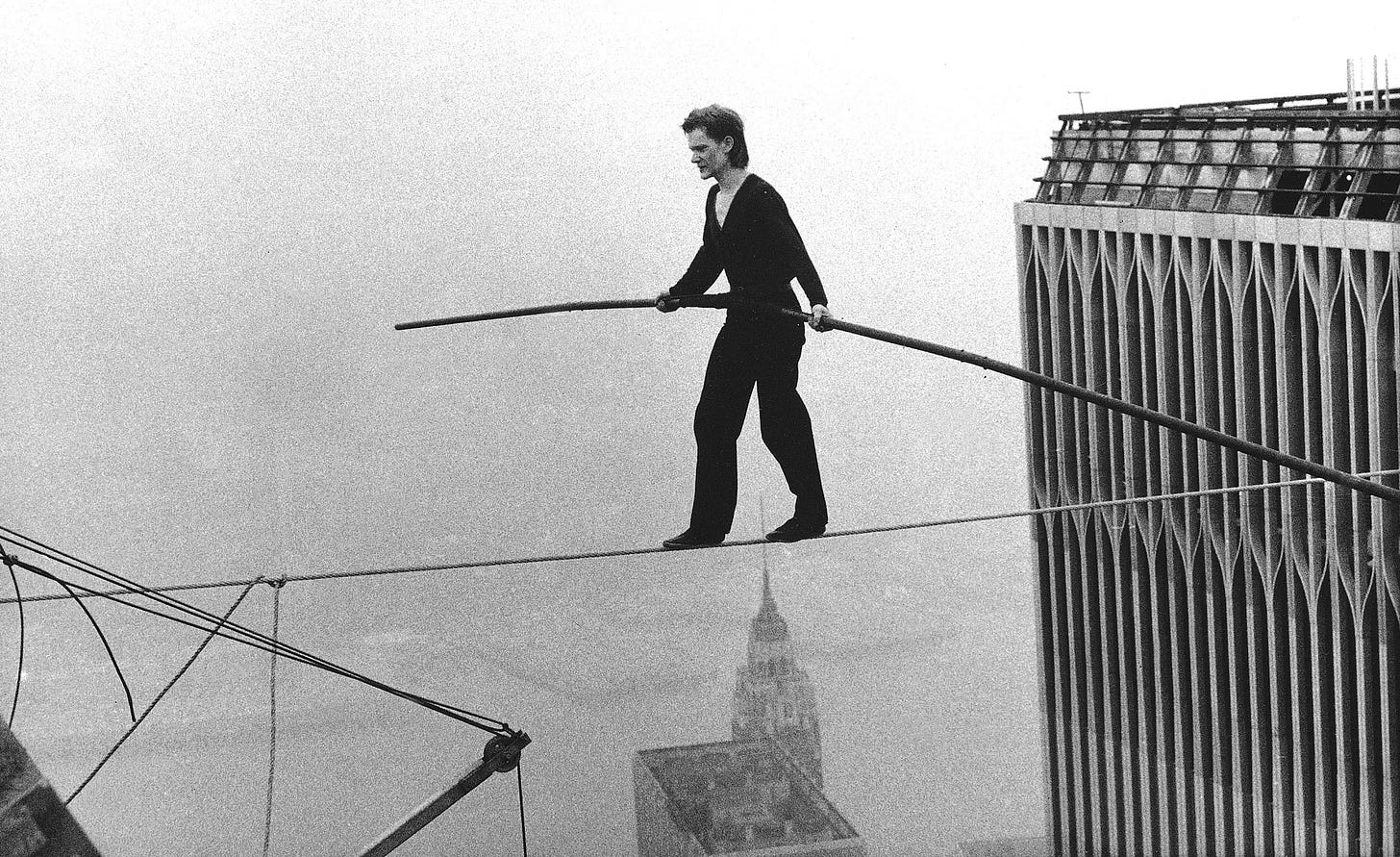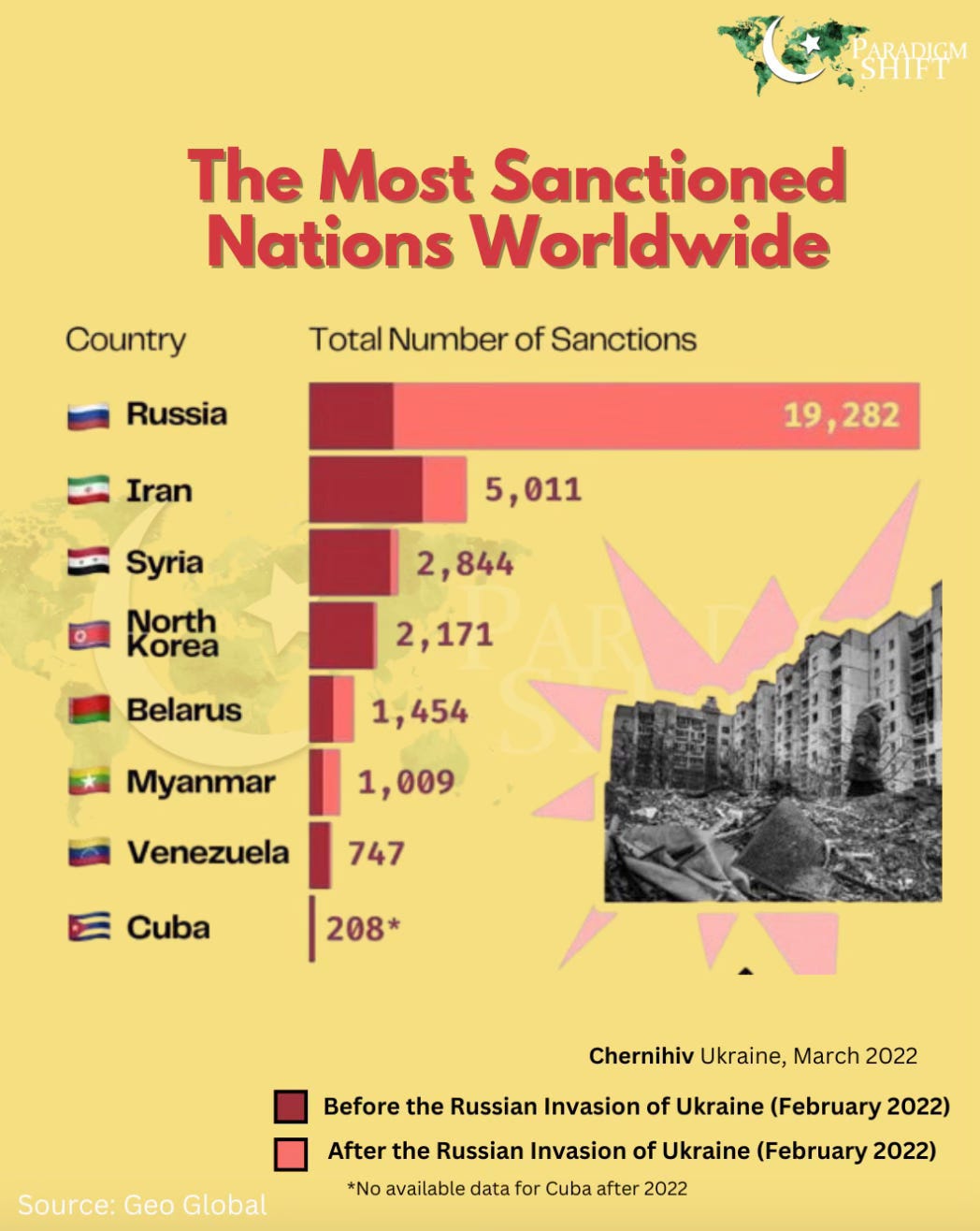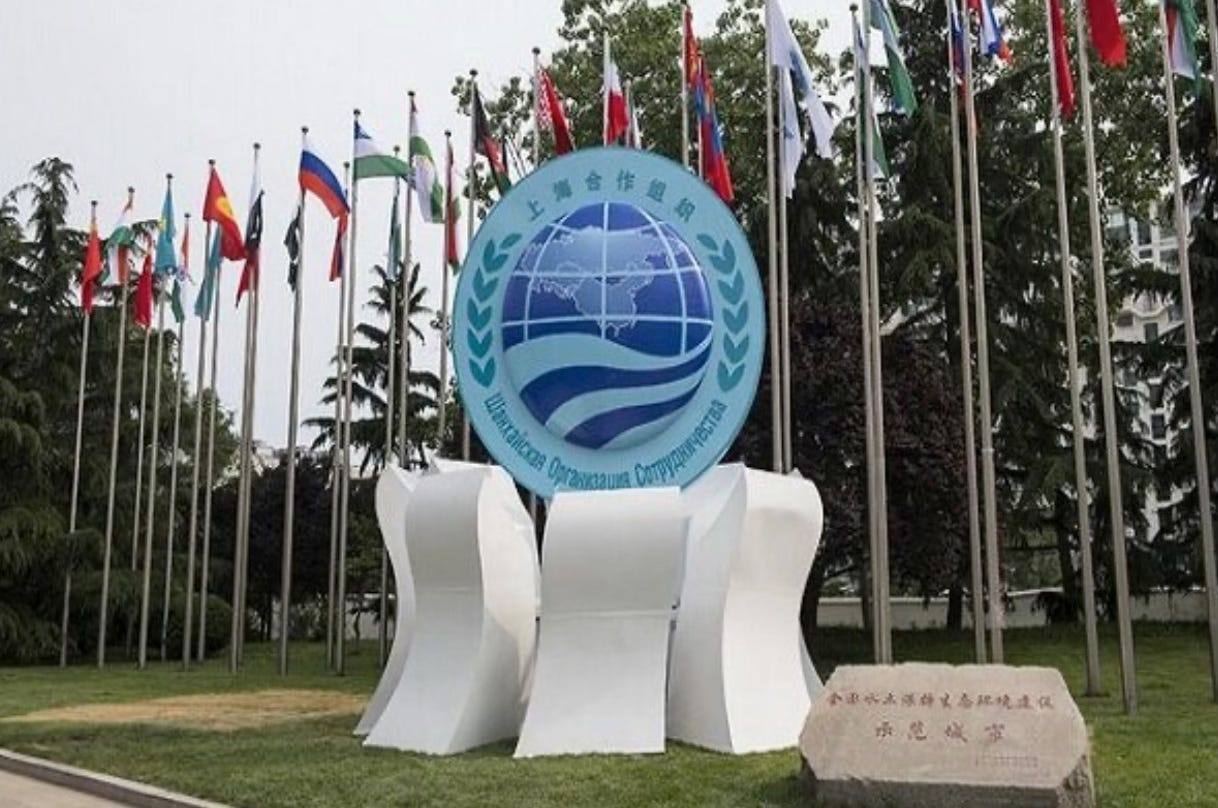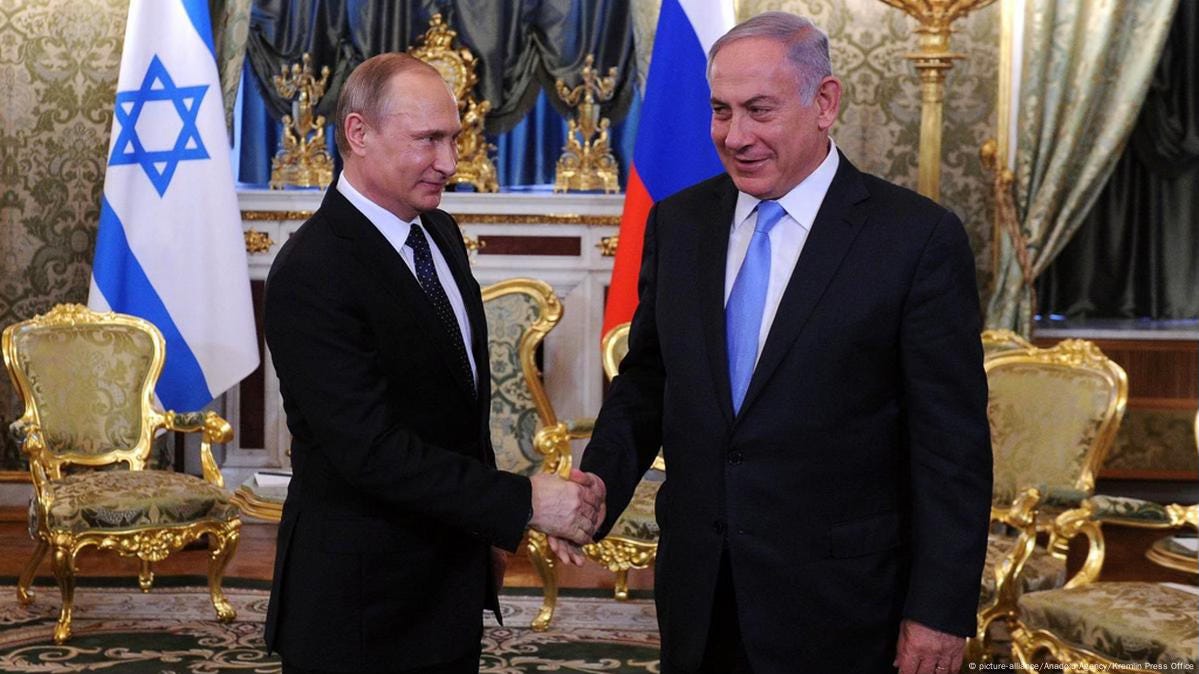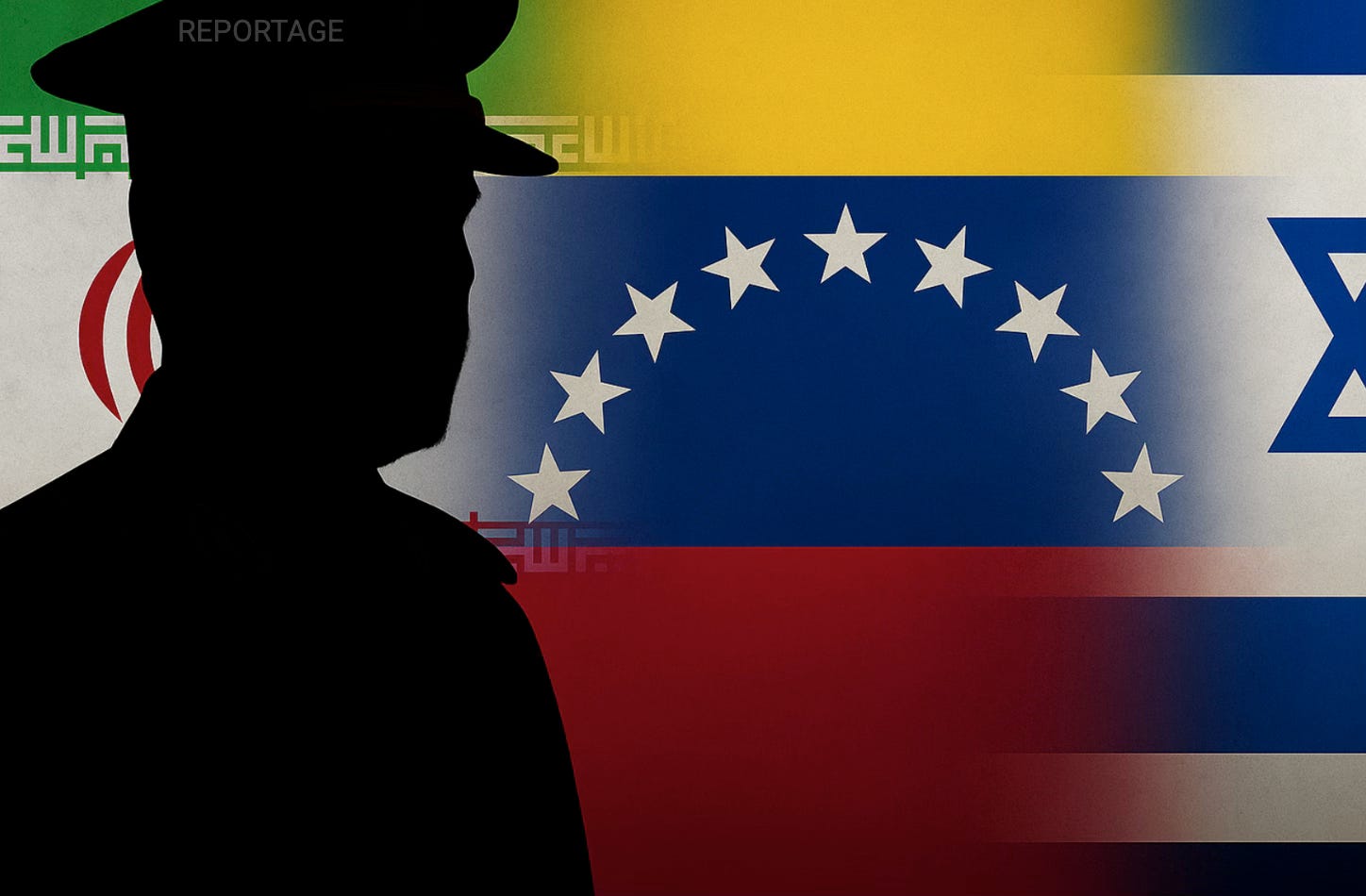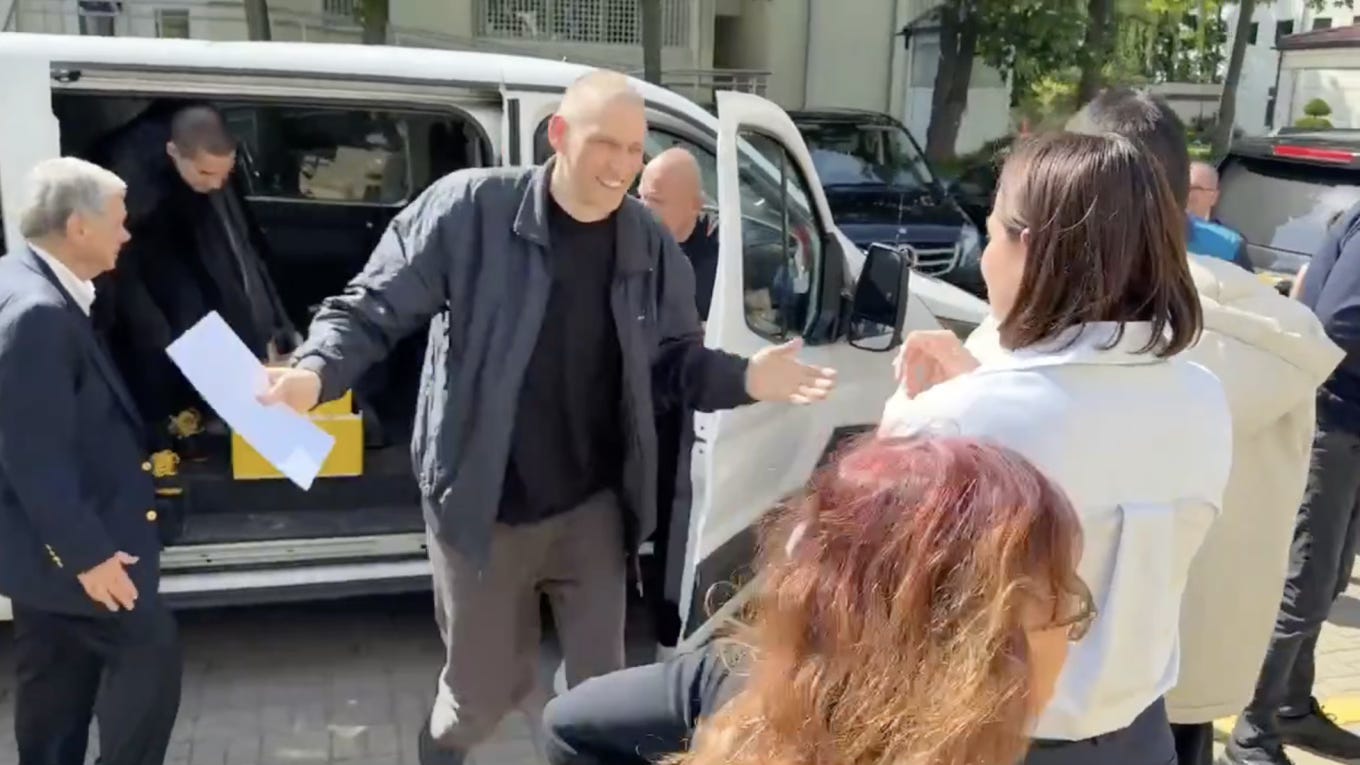The Kremlin’s High Wire Act: Iranian–Israeli War
Arabs and Persians | Russian Diaspora in Israel | No Time for Losers
Dear BWR Shoeshiners and Barbers!
SPECIAL BWR TELEGRAM—Today’s issue was written before the US attack on Iran’s nuclear enrichment sites; nevertheless, it remains relevant to Russia’s influence and interests in the region. How will Russia react, and what role will Russia have in this war?
What happens next is anyone’s guess. We may see the Ayatollahs double down and pursue an end-of-times nuclear solution, or the Iranian Revolutionary Guards may take control and negotiate peace. However, it must be understood that the Islamic Republic of Iran’s stated goal since 1979 has been to wipe Israel off the map, and it has been actively working toward this objective. This goal, coupled with a ‘civilian’ nuclear program, is the root cause of the US and Israeli action.
The role Russia plays in reshaping the Middle East and the Levant is yet to be determined.
IMPORTANT NOTICE: Please be aware that some e-mail servers (G-mail in particular) may truncate the BWR newsletter, thus depriving you of total enjoyment. If this problem occurs, please read BWR on the Substack platform to enjoy the full newsletter.
Follow BWR’s daily posts on the Blue Sky platform for daily updates and posts.
In last week’s BWR, I discussed Ukraine’s emerging defense industrial sector. European defense companies are establishing a footprint in Ukraine, while Ukrainian companies are commercializing weapon technologies and reinventing the development process.
In this week’s BWR, I will discuss Russia’s interests in the Iranian-Israeli War. The alliance of convenience with Iran has reached the end of its usefulness and is now becoming a liability. What is there to be done?
Takeaways
RUSSIA FIRST—The Russo-Iranian alliance is becoming a liability for Putin, as it may present a problem toward achieving Putin’s priorities of normalized relations with the US and subjugating Ukraine.
INFLUENCE—Russia’s eroding influence in the Middle East is being filled by Israel and Türkiye. Syria is now under Turkish influence, and Iran has been neutralized by Mossad’s (Israeli Intelligence) series of sophisticated operations—Grim Beeper and Rising Lion.
OPPORTUNITY—The Kremlin has an opportunity to bank goodwill with Trump by bringing Iran to the peace table with a plan to dismantle Iran’s nuclear weapons program (if one exists). Whether Russia has that much influence over Iran’s leadership is uncertain.
The Arab World and Iran
When Putin came to power in 2000, he aimed to reassert Moscow’s influence in the Middle East, which had diminished following the collapse of the Soviet Union. He revitalized the traditional Soviet-era relationships that had become stagnant with the Arab world and Iran, and he expanded the relationship to include participation in OPEC+ starting in 2016. This provided the Kremlin with a shared geopolitical and economic interest alongside Arab countries and Iran.
Unlike the Arab world, the Russo—Iranian alliance, despite centuries of wars between the empires and competition for influence in Syria, which is now under Turkish purview, is rooted in deep-seated anti-Western grievances. Their shared knowledge of and interests in sanctions evasion and grievances against the Western-led global economic order have united them. However, it remains an alliance of convenience.
Today, Russia and Iran share the distinction of being the most Western-sanctioned countries in the World.
Western sanctions have forced Russia and Iran to adapt and collaborate, creating new markets and trade routes. Early in Putin’s war on Ukraine, Russia purchased thousands of Iranian drones that proved critical to Russia’s battlefield advantage. Over the course of three years of war, a joint production plant was established in Kazan (Tatarstan). Russia has localized the manufacturing of Shahed drones and improved upon the original designs.
The Kremlin has also provided political support by sponsoring Iran’s membership in the Shanghai Cooperation Organization (SCO) in 2023.
In January 2025, the Russo-Iranian relationship reached a state of nirvana with the signing of the Treaty «On the Treaty of Comprehensive Strategic Partnership Between the Russian Federation and the Islamic Republic of Iran». Yes, that is the real Russian name of the treaty – classic Soviet speak. This 20-year “comprehensive” agreement is a compilation of existing agreements, and the security aspect is mainly symbolic and lacks substance. It includes a clause banning both parties from providing matériel to an aggressor state that attacks either party. In this situation, Israel does not need matériel from Russia, and even if it did, Russia would not sell it because all military resources are going toward Putin’s war. It does not require either party to provide military aid in the event one is attacked.
It seems that the Russo-Iranian relationship is no longer so convenient for Russia and is now entering a phase of pragmatism. Unfortunately for Iran, circumstances have shifted; Russia is no longer desperate for Iranian drones, and Donald Trump has returned to the White House with a renewed mission to normalize relations with Russia. Meanwhile, Hamas and Hezbollah have been reduced to ashes by the Israelis. The Israelis have destroyed the Shia Crescent with exploding pagers and brute force. Additionally, Turkish President Recep Tayyip Erdoğan has replaced Syrian President Bashar al-Assad with his man, the reformed, model-handsome ISIS terrorist, Ahmed al-Sharaa.
In this new era of realpolitik, the Kremlin is reassessing its global interests and strategy, and it looks like Iran has been demoted to a minor player. This is evidenced by the Kremlin’s less-than-convincing public statements against the Israeli attacks on Iran.
Israel
The relationship between Russian President Vladimir Putin and Israeli Prime Minister Benjamin Netanyahu has seen better days; nevertheless, it remains intact. Netanyahu is the longest-serving prime minister (16 years in total) in the history of the Israeli state, while Putin has ruled Russia for the past 25 years. Israel’s neutral stance over Putin’s war on Ukraine and the absence of Israeli financial and matériel support to Ukraine illustrate the power of their relationship.
However, the relationship was tested when Putin delayed condemning Hamas for the unprecedented mass murder of almost 1,500 innocent Israeli civilians in October 2023. At the time, the Kremlin was still dependent on the supply of Iranian drones for its war on Ukraine and was therefore not in a position to call out Hamas, Iran’s proxy, for the murders. Instead of calling out Hamas for the murders, Putin blamed the US for creating the conditions for the massacre to happen. Putin’s first statement on the October massacre came four days after it occurred, during a press conference with Iraqi Prime Minister Al-Sudani. Putin blamed the Gaza massacre on years of failed U.S. policy in the region.
"I think that many people will agree with me that this is a vivid example of the failure of United States policy in the Middle East….Washington monopolised efforts at forging peace and ignored the interests of Palestinians, including their need for their own independent Palestinian state.”
This was an effort to maintain the Kremlin’s relationship with both Iran and its proxies, as well as Israel. Unsurprisingly, Putin’s response did not sit well with Netanyahu, and it strained their relationship.
While Putin and Netanyahu have developed a strong personal relationship that has stood the test of time, the foundation of the Russian-Israeli relationship lies in the nearly 1.3M Russian speakers who have emigrated to Israel since the collapse of the Soviet Union. These individuals make up about 20% of the Israeli population and significantly influence Israeli politics and business with Russia and other former Soviet states. It's also important to note that Ukrainians have emigrated to Israel over several decades.
Winners and Losers
Putin does not want to be associated with losers and possesses a strong instinct for self-preservation. He also lacks the hardware and political strength to assist Iran, even if he were inclined to do so. From this premise, and his decision to send a plane instead of arms to Syrian President Bashar al-Assad, some insight into how he might handle the stakeholders in the Iranian-Israeli war. It should be noted that the Kremlin is also wary of a nuclear-armed Iran, particularly given its extremist theological leadership.
Israel’s success in executing a series of sophisticated operations—Grim Beeper and Rising Lion—that dismantled the command-and-control structures of Hamas, Hezbollah, and the Iranian Revolutionary Guard has not gone unnoticed by Putin. Israel has proven its ‘winner’ status by demonstrating intelligence and military capabilities that Putin could only dream of. No doubt, and much to Putin’s chagrin, the Israeli operations share many similarities with the Ukrainian attacks on airbases inside Russia—Operation Spider Web. Putin also understands that Netanyahu has an influence on Trump.
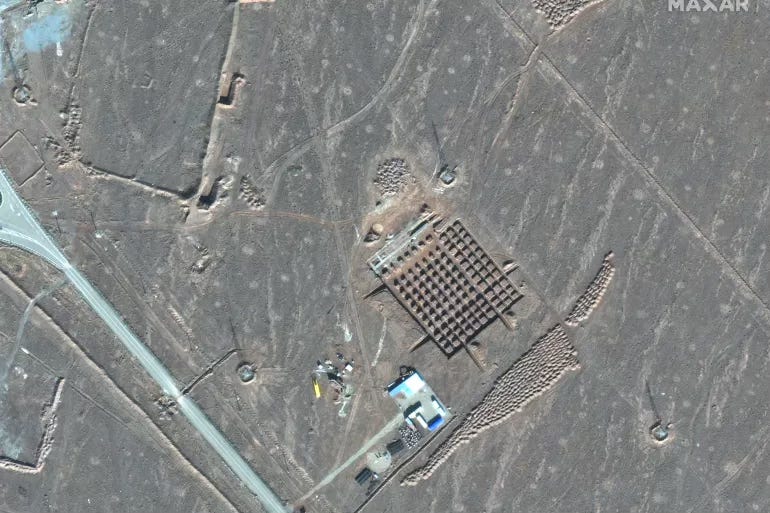
In short, Putin will not rush to defend Iran when the US eventually takes out the nuclear enrichment facility in Fordow.
Putin’s best move going forward would be to bring Iran to the negotiating table with a plan that guarantees the dismantling of Iran’s nuclear weapons program – if such a program exists. Such a contribution toward Trump being awarded the Nobel Peace Prize will buy Putin the world.
Conclusion
One should note the Kremlin’s two key priorities: (1) normalize relations with the US, and (2) subjugate Ukraine. This implies that if Iran becomes an obstacle to achieving these goals...Well, I see the proverbial bus on the horizon for Iran to be tossed under.
The Iranian threat to achieving the first priority became clear when Putin publicly offered to mediate the war between Iran and Israel. During a press conference, Trump was asked about Putin’s overtures, and he responded with
"I spoke to him [Putin] yesterday and... he actually offered to help mediate, I said 'do me a favor, mediate your own. Let's mediate Russia first, okay? You can worry about this later.'"
Trump expressed his frustration at his inability to resolve Putin’s war in 24 hours many times in the past, but his statement marks a rare occasion where he implies that Putin is responsible for the lack of progress in settling the war.
Recently, the Israeli government was tongue-tied over an Israeli ambassador’s claim that it had transferred Patriot air defense systems to Ukraine. This incident underscores the sensitive nature of the Russian–Israeli relationship concerning the supply of matériel to Ukraine. The reality that Israel has not supplied Ukraine with weapons is a position that Putin aims to maintain, and a decision that rests solely with Netanyahu. A key factor in Netanyahu’s decision will be the level of support Putin provides to Iran, if any, in its war with Israel.
Additional Reading(s)
Trump says Putin has no business mediating between Iran and Israel (Le Monde, 19 Jun 2025)
What is Iran’s Fordow nuclear facility, and could US weapons destroy it? (Al Jazeera, 19 Jun 2025)
The Alliance of the Aggrieved (Part 2) - Russia and Iran (Barbershop Whispers…Russia, 30 Jun 2024)
The Russia and Middle East Relationship: It’s Complicated (Barbershop whispers…Russia, 15 Oct 2023)
Assad Asks for Troops, Putin Sends a Ride (Barbershop whispers…Russia, 15 Dec 2024)
In Classic Soviet Speak: «On the Treaty of Comprehensive Strategic Partnership Between the Russian Federation and the Islamic Republic of Iran» (Barbershop whispers…Russia, 19 Jan 2025)
Follow-ups & Quick Bites
Follow-ups
No Follow-ups this week.
Quick Bites
Sudden Increase of Iranian Elites Relocating to Venezuela
There have been several reports of high-ranking Iranian bankers, oil traders, intelligence agents, and Iranian government family members relocating to Venezuela since the outbreak of the Iranian-Israeli war.
It should be noted that Iran’s Qods Aviation Industry established a drone manufacturing and training center at El Libertador Air Base in Venezuela several years ago. The facility currently produces several drone models, including:
Shahed-131 (Zamora V-1): Identical to the models used by Russia.
Mohajer-6: Precision ammunition and advanced surveillance capabilities.
In addition to these models, Venezuela has developed its own drone versions with a range of 2,000 KM, capable of reaching the US. They have also used them in combat against FARC dissidents along the border with Colombia.
As Trump considers entering the Iranian-Israeli war, what retaliatory options does Iran have against the US in the event of an attack on the Fordow enrichment facility? Given the recent successful attacks on Russian and Iranian airbases carried out by in-country sleeper cells using low-cost, easy-to-assemble drone kits, a sudden increase in Iranian operatives in Latin America should raise warning flags.
Does Iran have the capability of executing an Operation Spider Web or Rising Lion against the US?
Additional Reading(s)
La infiltración silenciosa: las élites del régimen iraní se trasladan discretamente a Venezuela (Diarios Las Américas, 19 Jun 2025)
Iranian Elites Flee to Venezuela (OFCS.Report, 21 Jun 2025)
Iran Increases Military Presence In Venezuela With Drone Factory (Latin Times, 10 Jan 2025)
Hezbollah's Networks in Latin America (RAND, 31 Mar 2025)
El mensaje del embajador iraní en España, Reza Zabib: “Si los norteamericanos disparan una sola bala contra nosotros, todas sus bases serán objetivos legítimos” (Infobae, 19 Jun 2025)
Belarus Releases Opposition Leader Sergei Tikhanovsky
Belarusian opposition leader Sergei Tikhanovsky, was freed alongside over a dozen other political prisoners on Saturday in a surprise release hailed as a "symbol of hope".
His wife, Svetlana Tikhanovskaya, posted a video of the release on X and thanked the United States for brokering the release.
The surprise release was brokered by US special envoy Keith Kellogg, who travelled to Belarus earlier this week for talks with Belarusian President Alexander Lukashenko.
Lukashenko has been regularly pardoning small numbers of political prisoners, claiming the action to be a "humane gesture" toward those who have "gone astray".
This is a surprise, given Lukashenko’s low popularity among Belarusian citizens and Tikhanovsky potential to mobilize them against Lukashenko. Yes, he thinks he will win brownie points with the West, a game he used to play often before Putin launched his war against Ukraine, but it is unlikely.
Additional Reading(s)
Belarus releases political prisoners, including opposition leader Siarhei Tsikhanouski (Euro News, 21 Jun 2025)
Vol 3, No 25 - BWR 22.06.2025
Thank you for reading “Barbershop Whispers....Russia” written by Adam A Blanco! “Barbershop Whispers…Russia” is a product of e8Q Technologies, a consultancy with insights on all things Eurasia. Subscribe for free to receive new posts.




